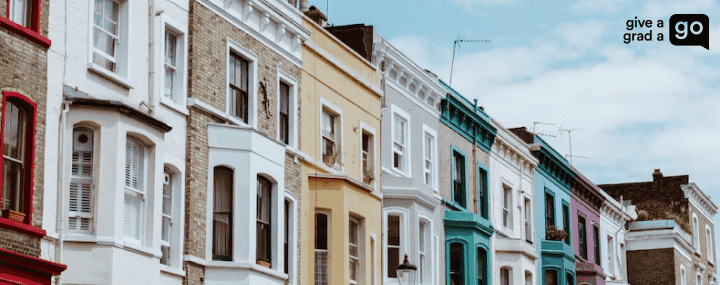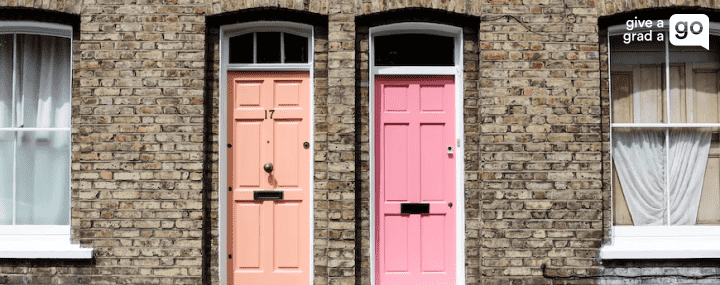A recent poll shows that two-thirds of Londoners find using public transport the most stressful part of living in the capital.
With the average journey to work in London taking as long as 74 minutes, and with countless different travel options on offer, it’s no wonder travelling around the city can be such a headache.
Continuing our Complete Guide to Working and Living in London, we now delve into ‘commuting to London’.
Wherever you’ve landed a graduate job in London, it’s likely that you’ll have to travel from place to place at one time or another.
When it comes to getting around in London, there’s no right or wrong – but here are some of the most common methods of transport in the capital:
How to get around London 🚶♂️
-
Often regarded as one of the most beautiful cities in the world, there’s no better way to take in the sights of London than by walking around it.
One of the least stressful ways of getting around (no crowds, and no traffic!) walking also has the added benefits of being completely free, and good for your health.
Contrary to popular belief, travelling around the city on foot can be just as quick as other forms of transport – plus you’ll get an added sense of satisfaction as you stroll past a traffic standstill in the city’s busiest areas.
Top tip: London’s weather is notoriously changeable – so make sure you’re prepared by bringing a number of layers, plus a waterproof with a hood, or an umbrella!
-
One money-saving and eco-friendly way to avoid busy public transport is to cycle to work – either using your own bike or a bike rental company such as Lime or Santander cycles by TFL.
Although the busy roads of London can be dangerous, cycling is often the quickest way of getting from A to B – and if you stick to dedicated cycling lanes, wear appropriate clothing and headgear, and plan your route before you set off, it doesn’t have to be a scary or unsafe method of travel.
Hiring bikes is also one of the cheapest options of all – costing around £2 a day.
Top tip: If you’re worried about cycling around the city for the first time, try out the journey with a friend or colleague for the first time before going it alone.
-
There are 3 things to consider when contemplating driving around London – traffic, cost, and parking.
Being the UK’s capital city, London’s roads are always busy – making journey times significantly longer than anywhere else in the country (in fact, the average speed in London is just 7.8 mph!)
If you’re considering driving more than a couple of miles to work, especially at rush hour, your journey could take a lot longer than you might expect.
Congestion charges are also a huge drawback to driving in the city – applying to most vehicles entering Central London between 7am and 6pm on Monday to Friday.
The charge costs between £10.50 and £14 depending on the type of vehicle and at what time it is paid, so is likely to make driving work a lot more expensive than other travel methods.
Many roads in London only offer residential parking, and those in Central London have restrictions in place between 8.30am and 6.30pm, on Monday to Saturday (where many graduate jobs are based).
With fines often as high as £80 to £130, parking in the city can be a risky venture.
Top tip: If you are looking for places to park in the city, apps like JustPark and websites such as Parkopedia can help you find available parking and estimate costs.
-
With the exception of walking, buses tend to be the cheapest way of getting around London, with a single bus fare costing just £1.50, no matter the length of your journey.
You can use a contactless card or Oyster card to pay for bus journeys around London, which only need to be tapped once when boarding the bus.
The best way to work out which bus (or buses) to catch is to use a travel app like Citymapper.
The main drawback of travelling by bus is that your journey can be heavily impacted by traffic and road works – but Citymapper will be able to give you an estimate of how long the journey will take, so that you can plan ahead.
Top tip: Back in 2016, London mayor Sadiq Khan launched the ‘hopper’ bus fare – allowing passengers to make a 2nd journey for free, within an hour of their 1st. This means that you can get two different buses to work, all for the grand total of £1.50!
-
The world-renowned London Underground is divided into 6 zones and 11 different tube lines.
The cost of getting the tube depends on how far you are travelling, the time of day and how you choose to pay for the journey (Oyster Cards or contactless payments are by far the cheapest ways to pay when using the tube!)
If you’ve just moved to London, there are some things to be considered when getting the tube for the first time:
Always stand on the right when using escalators
5 minutes makes a huge difference when getting the tube to your graduate job. You could leave at 8am one morning and it could be unbearably crowded, and 8.05am the next and it be relatively quiet.
Always leave yourself more than enough time to account for delays and overcrowding.
Don’t be frightened by the complicated-looking tube map – it’s actually a lot easier than it looks!
Apps like Citymapper or Google Maps will help you to plan your route to your graduate job (just remember to screenshot the route before you head underground and lose signal!)
Travelling on the tube is significantly more expensive than other modes of transport, with peak travel costing from £5.00+ per journey (depending on which zones you are in) – something to bear in mind when planning your daily journey to work
Connecting your 16-25 National Railcard to your Oyster Card can give you a 34% discount on off-peak travel (at the weekend)
Top tip: Travelling on the tube can feel like a huge waste of time, but why not use it to do something productive?
Whether it’s planning your day at work, reading a newspaper, or listening to a podcast on your work commute – don’t resent the lack of Wi-Fi, and use this time to add value to your day.
London transport is an inevitable part of living in the city – but with so many different ways of getting around, make sure that your journey to and from your graduate job is as economical and stress-free as possible!
Find more career advice on our graduate Careers Advice Blog – or check out the latest Graduate Jobs in London!





